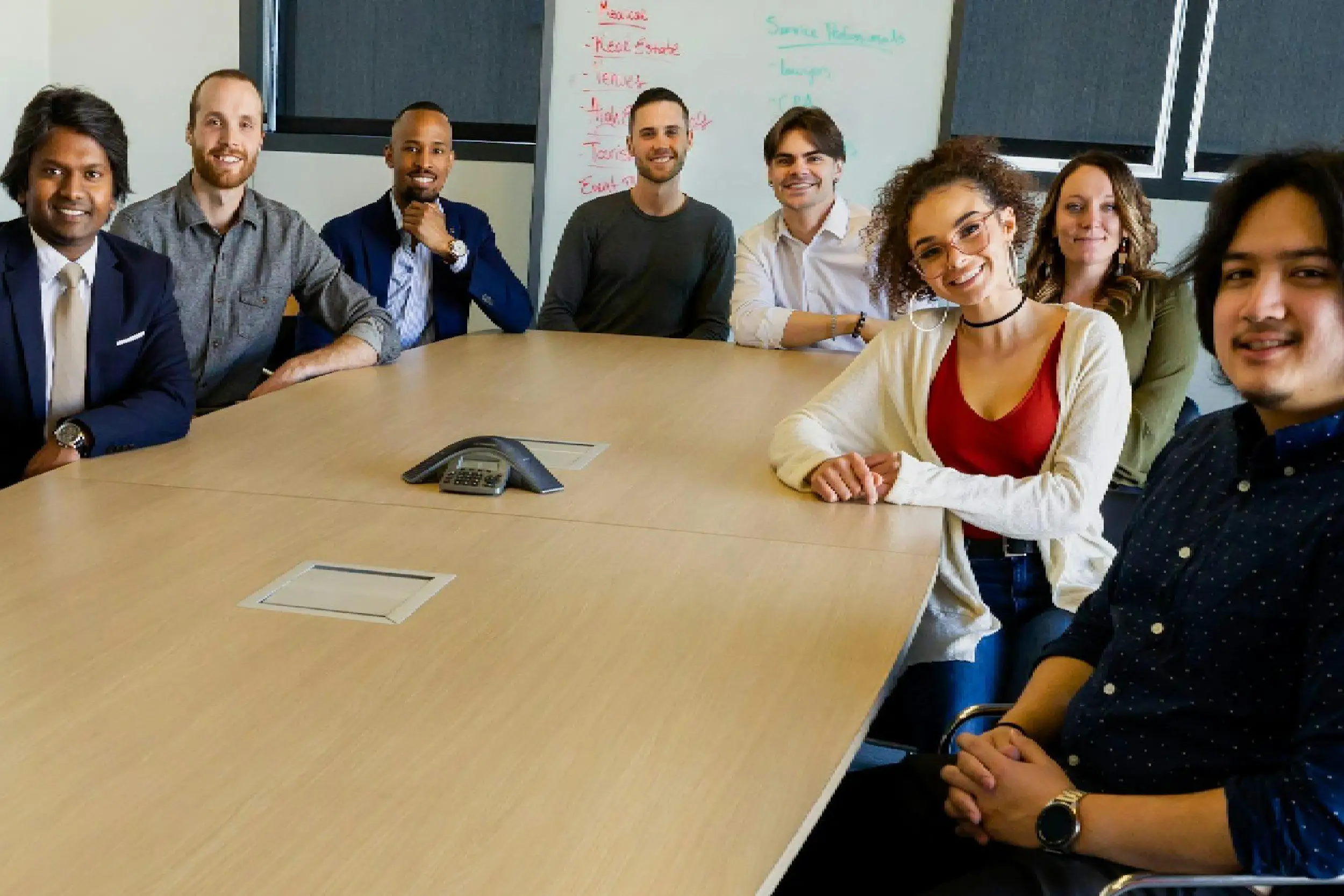Written By Tracey Pennywell I CEO – HBCU Heroes I DEI Strategist I Career Coach I Author
Success is not simply a matter of grades, internships, or receiving that initial job offer. Success is complete—it’s about flourishing, not merely existing.

For Black and Brown students, the path through college and into the workforce is accompanied by special challenges: economic strain, discrimination, family pressure, and the never-ending pressure to prove yourself in environments that don’t always include you.
According to a 2024 Kaiser Family Foundation (KFF) survey, only 39% of Black adults and 36% of Hispanic adults with fair or poor mental health received mental health services in the past three years, compared to 50% of their white counterparts.
That reality isn’t just affecting your good conscience. It’s affecting your grades, your income potential, and your future career path.
At HBCU Heroes, we think that taking care of your mental health and financial wellness isn’t self-care—it’s the ultimate career hack, and the facts support this.
The Connection Between Mental Well-Being, Money, and Career Success
Burnout Exists—and It’s Expensive
Chronic stress isn’t just exhausting; it can plummet your GPA, make internships more difficult to obtain, and even cause premature career dropout.
According to the National Alliance on Mental Illness (NAMI), 64% of college students drop out of school because of mental health issues, and burnout can be a major contributor to these concerns.
For Black and Brown students, who are frequently having to code-switch and deal with microaggressions and financial instability, the risk is increased even further.
Retention and Growth Rely on Well-Being
A 2025 Society for Human Resource Management (SHRM) report showed that mental health programs are linked to higher engagement (62%), performance (42%), and retention (42%).
That is to say, businesses are finally realizing what we’ve known all along: well-being is a retention tool, not an amenity.
Financial Well-Being and Mental Health Hand-in-Hand
A 2024 study by Financial Health Network associated poor mental health with debt levels that were higher and savings levels that were lower.
Financial distress is a key catalyst of depression and anxiety in college students, particularly first-generation and family-dependent students.
Here are a few steps to help get back on track:
Step 1: Break the Stigma—Mental Health is Strength, Not Weakness

Let’s start by naming the elephant in the room: mental health is still stigmatized in many Black and Brown communities.
We’re taught to “be strong”, “push through”, and “keep it moving”.
But strength isn’t about suffering in silence—it’s about knowing when to ask for help.
A 2021 student mental health survey conducted by United Negro College Fund (UNCF) and The Steve Fund revealed that 7 in 10 Historically Black Colleges and Universities (HBCU) students were interested in peer- or mentor-endorsed mental health services.
This means your voice counts. When you speak freely about stress, anxiety, or therapy, you encourage others to do so as well.
Action Step: Begin to discuss mental health this week with a friend, family member, or mentor. Share a resource, podcast, or simply your own story. You never know who it might help.
Step 2: Leverage Campus and Community Resources—You Don’t Have to Do It Alone
Campus Counseling Centers
Most HBCUs provide free counseling and support groups. They are confidential, culturally sensitive, and meant to assist you with anything—from stress and anxiety about classes to relationship issues.
Telehealth Services
Apps like BetterHelp and Talkspace provide affordable, private therapy, sometimes cheaper than a night on the town.
Many campuses also join with telehealth vendors to offer students free or reduced rates.
Financial Counseling
Money anxiety is real, but you don’t have to navigate it alone.
There are free budgeting, debt management, and scholarship workshops offered on many campuses.
HBCU Heroes has regularly scheduled financial literacy webinars led by Black and Brown finance professionals who get your path.
Action Step: Book one appointment—maybe with a counselor, a financial aid counselor, or a peer support group—this month. Take the initial step, even if it makes you nervous.
Step 3: Develop Resilience Through Self-Care—Small Habits, Big Impact
Set Boundaries
Practice saying “no” to draining commitments.
You don’t need to join every club, attend every event, or accept every request.
Guard your time and energy—your future self will appreciate it.
Practice Mindfulness

Meditation, journaling, and exercise aren’t just buzzwords. These are actually stress-reducing and focus-improving.
A few minutes a day can help. There are guided meditations in the Headspace and Insight Timer apps targeted at students of color.
Connect—Don’t Isolate
Surround yourself with a network of friends, mentors, and family.
Isolation amps up stress, but connection creates resilience.
Get involved in a campus group, participate in a support group, or contact an HBCU Heroes mentor.
Action Step: Choose one self-care practice you can begin this week—whether daily, a walk; daily, a gratitude journal; or weekly, a check-in with a friend.
Step 4: Connect Financial Health to Mental Health—Secure the Bag and Your Peace
Financial hardship is a huge cause of anxiety and depression for college students.
Black, Hispanic, and Native American students are more likely to have higher unmet financial needs and more student loan debt.
Create a Budget
Keep it simple.
For one month, track where your money is going. Take advantage of budgeting apps like Mint, YNAB, or SoFi to see exactly where your money is being spent.
Seek Out Scholarships and Paid Internships
Each dollar you don’t need to borrow is a dollar you won’t need to worry about later.
HBCU Heroes regularly posts one-time, exclusive scholarship awards and connects students to paid internships at leading employers. Explore and apply for scholarships designed to empower HBCU students here.
Build Multiple Streams of Income
Side hustles aren’t just for entrepreneurs.
Whether it’s tutoring, graphic design, or social media strategy, platforms like Fiverr and Upwork make it easy to monetize your skills.
7 in 10 Gen Zs are considering earning extra income via side hustles. With an average side hustle, a young professional can earn $1,215 monthly, which is significantly higher than the median monthly income of $400.
Get Financial Counseling
42% of college students dropped out of school due to financial issues.

My advice? Don’t wait until you’re overwhelmed—get proactive.
Action Step: Apply for at least one scholarship or paid internship this semester. Attend a financial literacy workshop—many are offered virtually and are tailored for HBCU students.
Step 5: Advocate for Systemic Change—Your Voice Matters
Well-being is not only an individual responsibility but also a community and institutional one.
Organize or join campus organizations working on mental health and wellness. Organize for increased resources, culturally responsive counselors, and well-being-supportive policies.
Join the Movement
HBCU Heroes collaborates with student leaders to host mental health forums, peer support groups, and advocacy campaigns.
Your voice can also bring additional resources to your campus and destigmatize mental health for generations to come.
Demand Culturally Competent Care
All mental health resources are not created equal.
Demand counselors and programs that listen and understand the lived experiences of Black and Brown students.
Action Step: Visit a campus town hall meeting or student government forum and inquire about mental health services. Your voice can bring about change for all.
Step 6: Harness the Power of HBCU Heroes—Your Ally to Well-Being and Prosperity
Here at HBCU Heroes, we recognize that living your best life is about more than just surviving.
That’s why we provide an integrated set of programs built to advance your mental, financial, and professional well-being, such as the following:
- Mental Health Webinars: Hosted by Black and Brown therapists, these webinars address issues like anxiety, impostor syndrome, and resilience.
- Financial Literacy Workshops: Budget, invest, and learn how to build generational wealth from experts who resemble you and get it.
- Mentorship Programs: Match with mentors who have walked where you walked and can give you real talk, not generic tips.
- Career Prep and Networking: From résumé preparation to simulation interviews, we assist you in showing up at your best—secure, prepared, and strong.
We don’t merely want you to get through college—we want you to thrive in your career, finances, and life.

Our programs are developed to address you where you are, whether you’re a freshman discovering your way or a senior getting ready for the next huge step.
Learn more about our student programs and register for future events at HBCU Heroes.
Final Word: Your Brilliance Deserves More Than Survival
Being smart isn’t sufficient.
We require tools, planning, and unapologetic self-care.
If you’ve ever felt overwhelmed, stressed, or like you’re shouldering the burden of your world, you’re not alone—and you don’t have to do it alone.
Prioritizing your mental and financial health is the ultimate career hack.
By taking care of yourself, you’re investing in your future success, resilience, and happiness.
And when you’re ready to level up, HBCU Heroes is here to walk with you, offering mentorship, resources, and a community that enables you to thrive.
Ready to turn the page? Visit our website to register for our next mental health webinar, attend a financial literacy workshop, or meet with a mentor who understands.
Your path to stress-free success begins today.









